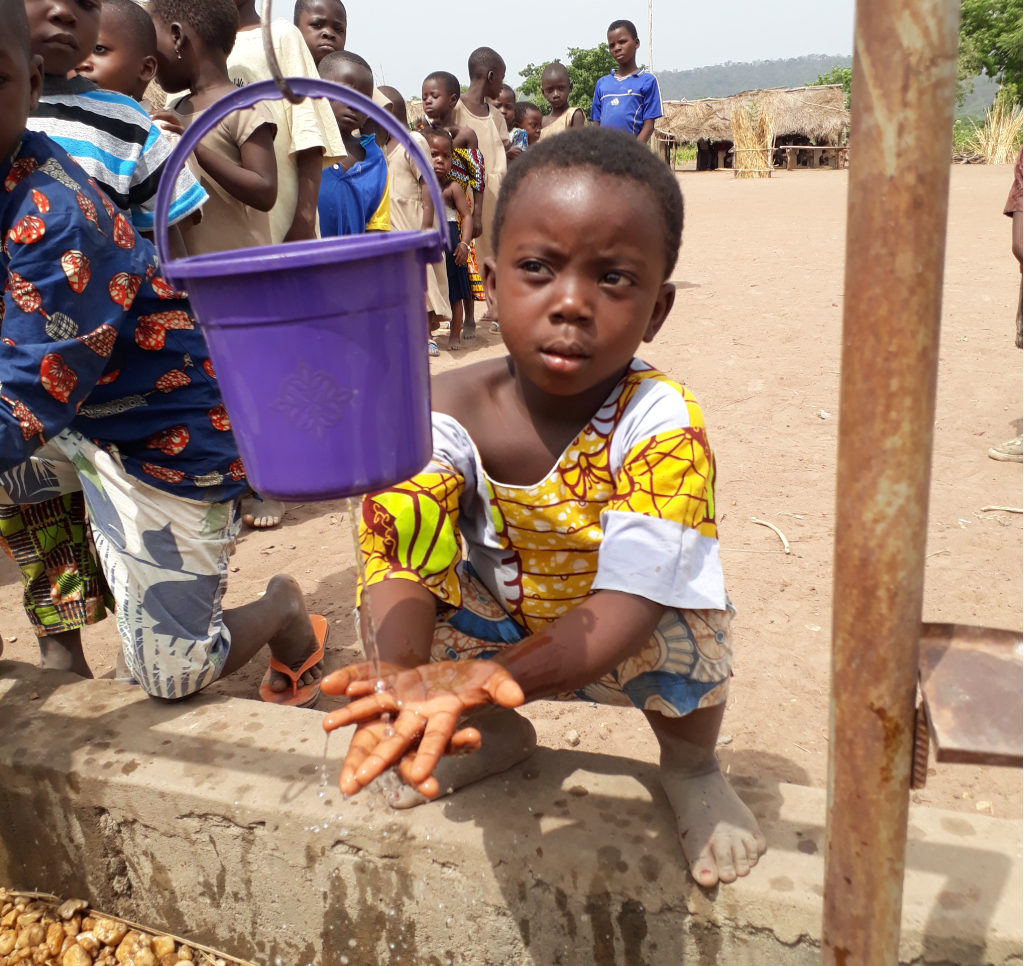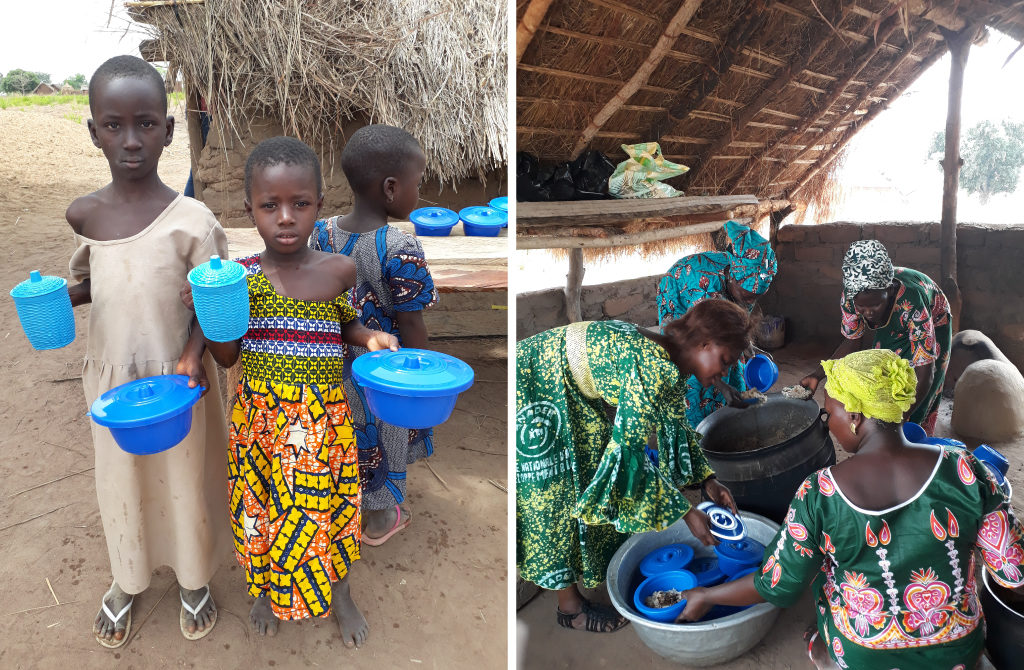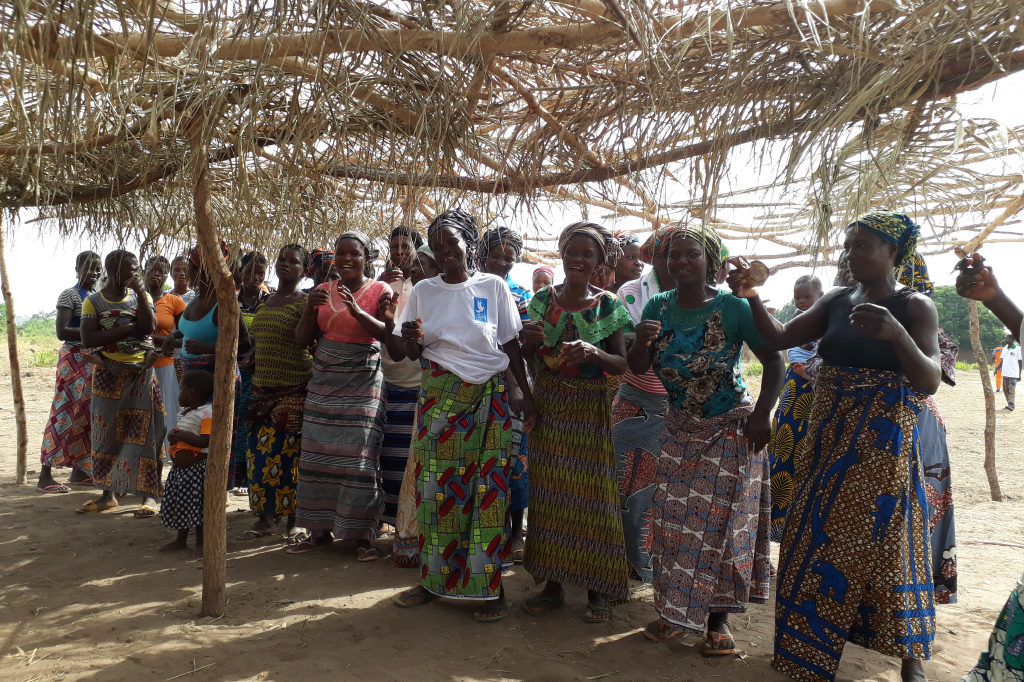
The government of Togo is reviewing the country’s school feeding models, and requested the WFP Centre of Excellence’s support in assessing its community model that is currently being piloted in all regions of the country. This new approach was launched by the government in 2018 in 10 pilot schools and puts emphasis on community participation to implement the school feeding programme. To make this assessment, the WFP Centre undertook a technical mission to Togo from 12 to 18 March, with support from the WFP country office.
During the mission, Mariana Rocha, WFP Centre expert, had meetings with WFP and government officials and made a field trip to the municipality of Blitta, in the Central Region of the country. The goal was to see first-hand how the model is working and evaluate its feasibility for expansion to other schools, according to some key aspects: community mobilization, infrastructure, cash transfers, local food production, provision and storage of food, menus, and reporting. The findings will inform a broader analysis of the country’s school feeding implementation models with recommendations on how to advance towards a schools of excellence approach.

The school
The school visited during the field trip is a primary public school in the rural outskirts of Blitta, with 112 students, of which 48 are girls. The students receive hot meals three times a week, following a menu that privileges local food habits and crops. The food is prepared by 10 mothers who take turns to cook for the children. The families also contribute to the school feeding programme by donating part of their food production. The rest of the food used by the programme is purchased each week from a market in Blitta, with funds transferred by the central government agency responsible for the school feeding programme, ANADEB.
This school was chosen for the piloting of the community model after the local community demanded the implementation of a school feeding programme in the school. The school community went through a mobilization process, supported by regional coordination of ANADEB, which conducted capacitation sessions covering themes such as the organization of community contributions to the programme, food purchase, and food preparation.

Findings
A positive aspect of the community model is that it is based upon a sound consultation and mobilization process conducted with local communities. It takes advantage of existing structures, such as parents’ committees, and it integrates the agricultural profile of the population. The programme allows parents to contribute to school feeding by providing local produce, instead of paying cash fees.
The programme also adds value to local products and uses short supply chains to buy the food items used in the meals, with funds transferred directly to the school. It has great potential for coordinated initiatives by different sectors to intervene in local development aspects, such as nutrition, access to water and sanitation, health, and agriculture.





